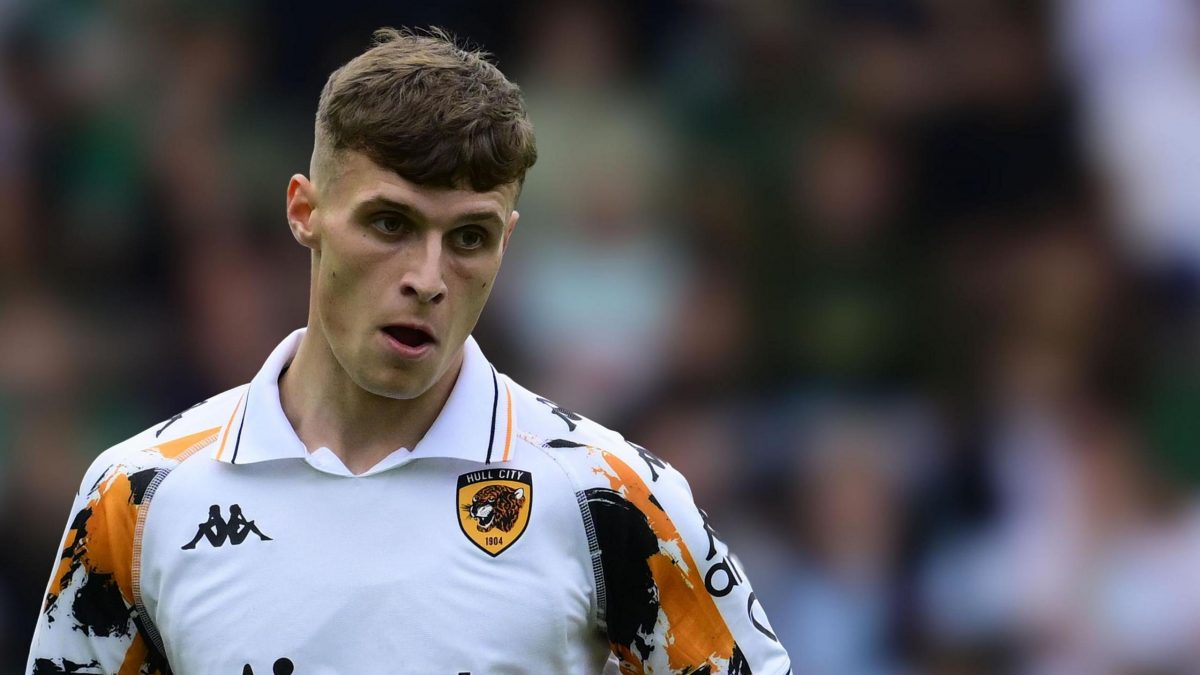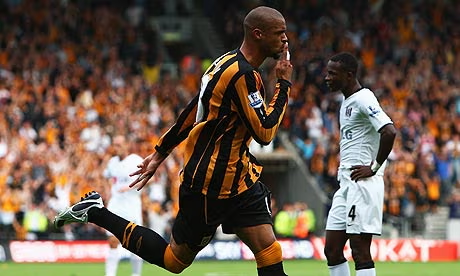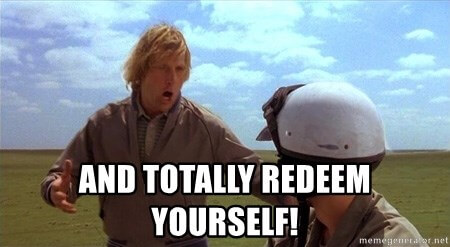I don’t really want to think about City at the moment. Every time we seem to make progress, we then step backwards again and as soon as you’re looking up the league, you’re inevitably metaphorically slapped back in the face again and you start praying that the Portsmouth squad go down with norovirus.. add that to some less than wholesome content on the #hcafc hashtag recently and I’d pretty much had enough of our current timeline.
Club admin is a pretty thankless task I must admit but when my phone flashed up today with them declaring that Joe Geldhardt’s strike last night was, and I quote “Not a bad way to open your city account” I must admit I was tempted to disagree. The goal itself was very good obviously, but there are many better ways to open your account, with an equaliser, or a winner, or not a goal in front of a freezing cold beleaguered fan base that ultimately meant diddly of squat. Yes, yes I know dear reader it’s churlish of me, and I know it was a well taken goal, but by then I just want to switch off to anything Hull City related until the next time I can face it.
All of which made me think of goals I either didn’t really want to want to remember or that were forgotten like I wanted to forget last night. I couldn’t find everything I wanted (Billy Paynter’s missile against Crewe in an otherwise incredibly mediocre performance in 2005, or Jon Whitney’s Uberthunderbastard vs Peterborough United in 1999 for example) but Tiger Tube is a wonderful resource. Without them and Tigerbase I don’t think I’d be able to tip toe through yesteryear like I’m about to, so thank you folks, it’s a fantastic resource that never stops being ace.
So here they are… five goals that you may not recall, might vaguely remember or have collected dust in your DVD collection and a little bit of background with it. Just like Joe Gelhardt’s strike will do in future years, they may be forgotten, and perhaps harshly, as they really were very good. I hope you enjoy and as ever send me your hate tweets on X @thelikesofhull or bluesky bollock ins, and tell me what a load of old Jeff Lee my blog is. Keep the faith and enjoy. UTT
Shaun Smith vs Cambridge United 2002
Jan Molby got a couple of things right, in bringing in Ian Ashbee and Stuart Elliott, but he also got quite a bit wrong in recruitment and just about everything else. Shaun Smith was one example of that. Beloved by Crewe fans, the 31 year old full back joined us and was not as was described on the box, frankly I’ve seen wheelie bins turn quicker. Anyway he was soon jettisoned from the starting line up and only played twenty times for City. In the midst of this underachievement he unexpectedly went prime Dave Beckham and scored this wonder free kick against Cambridge United in what I thought (foolishly) was going to be the point where we turned around our season. It wasn’t, he didn’t either, but wow, what a goal.
Brian McGinty vs Colchester United 1997
There’s an argument that Steven Boyack’s piledriver was even better but sadly the EFL programme knew better so didn’t bother putting it in. I was at this game as a previous Mrs Thelikesofhull lived in East Anglia, so rather than face a day of her six fingered relatives, I drove myself to Colchester to see the Hateley led also rans (which is kind) against the play off chasing hosts. We went 2-0 down, and fought all the way back to 3-2 up only to lose in injury time, in the most typical city way imaginable. Anyway, the equaliser was a wonderful cutting run by the East Kilbride Neymar himself as he powers through and smashes the ball into the top corner. Quite brilliant and ultimately quite pointless. Cheers city.
Tom Cairney vs Norwich City 2010
Speaking of dull ventures in a dull place, here in 2010 I found myself in deepest darkest Norfolk, hoping City could break their run of about a thousand away games without a win, and watching spanner faced Nigel Pearson attempt to achieve this feat by literally never attacking.
It’s hard to put into words how little we deserved to win this game, but essentially we were absolute bobbins for 80 minutes, created zero chances and were let off time and again by a Norwich side being traumatised by their fans insistence in singing the world’s worst football song. Completely undeservedly Bobby Koren who looked at least four hundred yards offside scored after a shot deflected to him and then Tom Cairney wiped away his Clearisil and hit an absolute stonker of a free kick to seal it.
Daylight robbery and a terrible match, but what a goal.
Gary Brabin vs Leyton Orient 1999
All goals aren’t forgotten because they were in bad matches, or poor results and here’s an example of one. The climb out of trouble in 1999 was remarkable and fair play to the club in remembering it so well on it’s 25th anniversary last year. I probably never went to more games that year as you pretty much had to go, and this was a great day. The vastly underrated David Brown’s perfectly weighted header won the day, but before that something other worldly happened. A man the size of a fully grown gorilla and probably with a similar outlook on life took off… in the East London sky and scored a bicycle kick. Frankly City should have made this into a t-shirt, a bit like the Air Jordan logo, but with Brabs defying gravity and logic to go airborne and give us the lead. Both brutal, beautiful and majestic in the same measure.
Leigh Jenkinson vs Stoke City 1992
Speaking of forgettable, see the 1991-92 season for City. We were newly relegated to the third tier and never really suggested we’d be leaving it any time soon finishing a hugely mediocre 14th and being poorer than a church mouse on tax your cheese day. Terry Dolan wasn’t especially hated at this point but we still had the odd player who could do a little bit. Not least Mr Leigh “Jinky” Jenkinson, who would leave us not too long after to go play for top level Coventry City. If you’re of a certain age you might not know who he was, but if you did watch him, he was a talented boy. Not unlike Chris Waddle in style and could on his day be a match winner, in truth he probably didn’t fulfil his considerable potential after leaving the club, but his double that day was special against promotion chasing Stoke City, firstly a lob from range and then a fantastic run on the counter, fed by a young Dean Windass, with a step over and lethal finish. Quite brilliant and generally quite forgotten in time.
Hope you enjoyed the trip down memory lane, and hopefully we’ll score some goals that matter a bit more soon. Cheers.









